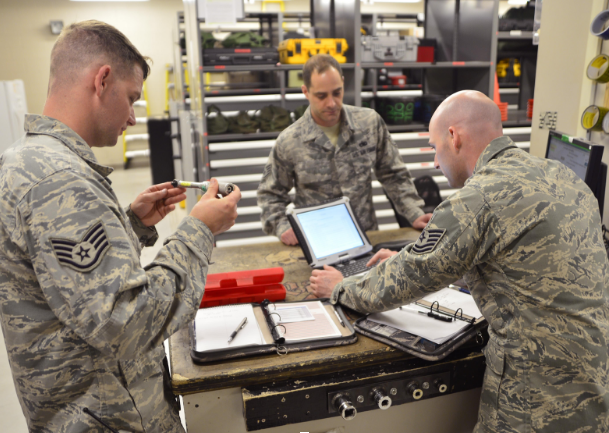
A contract as a military vendor can be a boon for any business. Military contracts often bring a heavy volume of work along with predictable cash flow. However, military business can often be complicated, and you may be expected to deliver on tight deadlines.
Even if you get your product produced, packaged, and shipped to the military destination on-time, you’re still not out of the woods. Before you get paid, your product and package may have to pass the Quality Assurance Review (QAR). This is the in-depth evaluation in which a military quality assurance representative checks your product against the military’s rigid quality standards.
Your packaging is also part of the QAR. Depending on your product, you likely are required to follow the Mil-Std-2073, ASTM D3951 or a SPI as you package your product. Mil-Std-2073 governs everything from the packaging materials you use to the container to methodologies for heat-sealing and preservation packaging. If your packaging doesn’t comply with the applicable section of 2073, your shipment could face a QAR rejection.
A QAR rejection can be highly problematic for a military vendor. At the bare minimum, it delays acceptance of the goods, thus delaying your shipment and your payment. You have to correct the issue and thus adds additional costs in labor, material and even shipping at times before the goods can be accepted by your QAR. If you have too many rejections, or your material is not in compliance your company runs the risk of receiving a government corrective action request.
The best way to avoid packaging-related QAR rejections or CAR is to work with a packaging partner who has experience complying with military standards. When you have a relationship with an established military packager, you’re free to focus on the quality of your product and have confidence that your packaging will comply with QAR standards.
Of course, not every packaging company is right for every type of military contract. You’ll want to partner with a company who has experience packaging your product for military customers. You’ll also want to be certain that they have the in-house standards and procedures needed to keep you in compliance. Here are a few things to look for:
Responsiveness
If you have any experience with military contracts, you know it’s often a game of wait-and-hurry-up. The military depot puts out an RFQ with a tight deadline. You race to get your estimate submitted and then you wait…...and wait and wait. The military can often take months to make a purchasing decisions. Once they make their choice, however, you don’t have much time to fulfill the order.
It’s important to work with a packaging partner who will be ready to go as soon as the order comes in. They should have your materials in-stock and your packaging ready for use. Many packagers wait until they have an order before they obtain the necessary materials. The larger and more seasoned packaging companies have these materials on-hand so they can meet quick turnaround times.
You can gauge a packaging partner’s responsiveness during the quote phase. If they have the materials on hand and are familiar with the packaging needed, they should be able to provide a quote within 24 hours, if not same day. If they can’t meet a tight deadline on providing a quote, they may not be responsive when it comes time to fill the actual order.
The Ability to Anticipate Your Needs
Anticipation is an important part of responsiveness. An experienced packager should be able to anticipate the materials and services you’ll need as part of your military contract. That way, they’ll be able to deliver even if you haven’t yet provided detailed, specific instructions.
Anticipation comes directly from experience. Look for a partner who has experience working with the following groups:
- Defense Logistics Agency (DLA)
- Defense Contract Management Agency (DCMA)
- Tanks and Armaments Command (TACOM)
- Navy Nuclear Program
- U.S. Coast Guard
A packaging company who has extensive experience working with a broad range of military purchasing agencies should be able to anticipate packaging needs based on your type of product. You can leverage their experience to shorten delivery times and reduce your costs.
Reliability
Finally, and perhaps most critically, you need a packaging partner who is reliable. You can’t afford a delay or quality issue in your military contract. A reliable packaging partner can help you deliver on your promises and get your shipments through the QAR.
How do you know in advance if a partner will be reliable? You can’t predict the future, but there are some things that can indicate a packaging company’s reliability. The most important predictors may be the processes the company employs to ensure quality and efficiency in their facilities.
For example, you may look at a packager’s certifications. Are they ISO certified? Consider their own processes and standards. Do they employ a kaizen philosophy of continuous improvement? Do they have a culture that is committed to quality?
You can ask these questions during your initial conversations with the prospective packager. A tour through their facility should also provide great insight about whether they have the processes needed to be a reliable partner.
Remember, your ability to deliver is only as strong as your packaging partner’s ability to deliver. Look for a partner who can consistently meet your high quality expectations and the military’s tight delivery deadlines. ![]()





Let Us Know What You Thought about this Post.
Put your Comment Below.